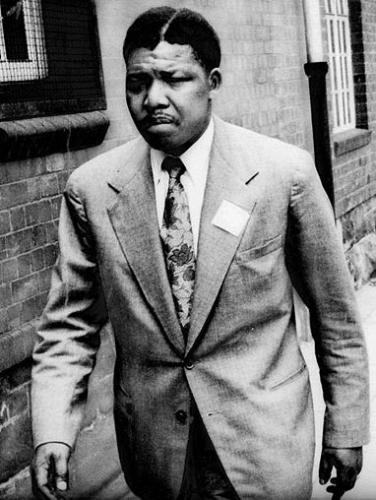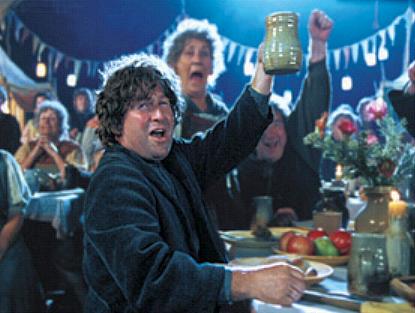 transformation
transformation Entries in transformation (8)
The Question We Should Be Asking About Mandela
 Wednesday, December 11, 2013 at 09:53AM
Wednesday, December 11, 2013 at 09:53AM  His body lies in state at Pretoria. World leaders assembled in Johannesburg, along with tens of thousands of citizens, to celebrate the life of Nelson Mandela. A great man has died and the world took note, mixed with wonder: young Mandela was jailed for violence against an unjust regime, and emerged 27 years later without anger or a thirst for vengeance.
His body lies in state at Pretoria. World leaders assembled in Johannesburg, along with tens of thousands of citizens, to celebrate the life of Nelson Mandela. A great man has died and the world took note, mixed with wonder: young Mandela was jailed for violence against an unjust regime, and emerged 27 years later without anger or a thirst for vengeance.
It’s been instructive to watch the world’s reaction. Mandela’s life has been celebrated—and properly so! Still, leaders and pundits alike have referred to Mandela’s peaceful and forgiving leadership as “miraculous,” as if the man himself had no choice in his transformation. The celebration is over, and now he lies in state. It’s a time for reflection. The one question we should be asking about Mandela is how did he change?
Young Mandela had lost patience with the way of Ghandi and Dr. King. He was ready to take action. “We considered four types of violent activities,” Mandela said in his autobiography. “It made sense to start with the form of violence that inflicted the least harm against individuals.” Still, it was the path of violence. Many revolutionaries have chosen “measured” violence only to find themselves on a spiral staircase of harm.
Mandela’s long walk included heart change. It was not an accident. It was a considered choice. He was the master of those choices. The prison system could inflict harm on his body, but Mandela could still care for his soul.
Robyn Dickey’s insightful reflection in the L.A. Times observes:
Robben Island left him damaged. But without the years of self-examination and meditation — seeing positive things in his darkest hours — Mandela might never have become such a remarkable leader after he walked free.
"At least, if for nothing else," he wrote in a 1975 letter to his wife, "the cell gives you the opportunity to look daily into your entire conduct, to overcome the bad and develop whatever is good in you.
"Never forget that a saint is a sinner who keeps on trying."
Mandela was a pragmatist, and that ability led him to care for his heart. The lesson for Students of Jesus is simply this: if a man, alone, left to his own resources can change and grow during 27 years of prison, how much more should we, who have the resource of the Spirit of God? Mandela's life teaches us about the nature of transformation: we have a role to play--and after we do our part, the resources of heaven can indeed turn us into miraculous brothers and sisters of Jesus.
Hobbits of the Kingdom
 Thursday, March 15, 2012 at 12:03AM
Thursday, March 15, 2012 at 12:03AM  Spiritual transformation begins with relationship, and all true relationship carries the power to transform us at the deepest level.
Spiritual transformation begins with relationship, and all true relationship carries the power to transform us at the deepest level.
Wouldn’t it be a shame to be married for a lifetime and not be changed by the process of sharing life together? Or raise children for twenty years, yet fail to grow in patience, grace, and kindness? Our most important and personal relationships touch us deeply. We find ourselves transformed into different people. The rough edges rounded and the abrasive surfaces rubbed smooth. We become changed into our true selves.
Do we have a relationship with Jesus, or merely a forgiveness arrangement? For many believers he’s the one who paid the price for our sin, paved the way to eternal life--and the one who left the planet a long time ago. The average believer in North America knows how to appropriate the legal exercise of God’s forgiveness, but has no real expectation of becoming “conformed to the image of Christ.” (Romans 8: 29) Wouldn’t it be terrible to be forever forgiven, but always unable to change?
I’d like to suggest three earth-bound agents of change God can also use in our spiritual lives. In marriage, family and friendships we find ourselves transformed by love, commitment, and constancy. These three pillars of human relationship can also become the means by which the Holy Spirit works in our lives.
Love
The reason I am less of a jerk after twenty-six years of marriage is simple: I love my wife. When I act selfishly toward my wife, she pays the price, and I witness first-hand the grief I caused. Because I love her I determine to do better. To be better. To think of her before I think of me. I’m still a selfish man, but I am less selfish after twenty-six years of trial and error. A marriage which does not impact our personality is no marriage at all.
The same can be true of my relationship with Christ. If Jesus is simply the Divine Defense Attorney who rescues me from hell, he has no claim on my life. If, however, Jesus is the passionate love of my life, I will joyfully conform my actions to whatever gives him joy. It’s about pleasing my beloved. Of course, the first question is--do I love him, or do I merely want to use his sacrifice?
Commitment
Insanity is hereditary--you get it from your kids! How many times in one day can a two year-old push your buttons? Why don’t we just walk that toddler to the front door and say, “That’s it, pal. I’ve had enough. You’re on your own!” Raising children comes with a twenty-year commitment to the unknown. We stick with our children even when they drive us crazy. We continue to pour our lives into them even when they are ungrateful and egocentric. Commitment stands firm even when love wants to run and cry
If we learn commitment from raising our children, how much more will commitment serve us as a means of grace with God? Even when we feel He may be against us, commitment can hold us firm. Of course, the Almighty is no petulant child, but there are certainly times when we do not understand his actions. His commandments can run counter to our desires, but our commitment can steady us until we come to our senses again and see his wisdom. That commitment can also strengthen our resolve to order our lives around his priorities.
Constancy
Life is so daily. We do the laundry this week, knowing we will do it again next week. Repetitive tasks threaten to overwhelm the beauty of life. Yet those who neglect the everyday matters are regarded as immature and irresponsible. The constant parade of days and weeks, months and years builds faithfulness into our souls.
Are we like Tolkien’s hobbits, whose quiet little folk demonstrated unseen reserves of strength? What if the everyday-ness of life reveals something of God’s grandeur? Our resolve to listen for his voice in the mundane, to sense his presence in the quiet of the house, to discover his faithfulness reflected in our meager faithful tasks can open us up to change at the deepest level. What if we are the hobbits of his kingdom?
The real question is whether our relationship with Jesus rises to the level of our most cherished human relationships. No one should settle for marriage, family, or friendship without significance. Why should we settle for less with the Lord of Glory?
Ever-Increasing Glory: A Life of Constant Change
 Thursday, August 25, 2011 at 06:55AM
Thursday, August 25, 2011 at 06:55AM I’ve discovered that becoming a follower of Jesus begins with at least three initial transformations: we must be born from above; we must acquire his character; and we must imitate his works. Most believers North America have some grasp on the first, a hope of the second, and almost no concept of the third.


